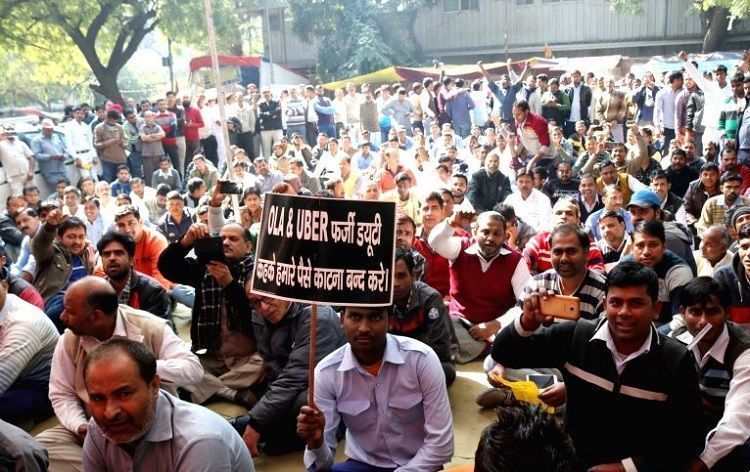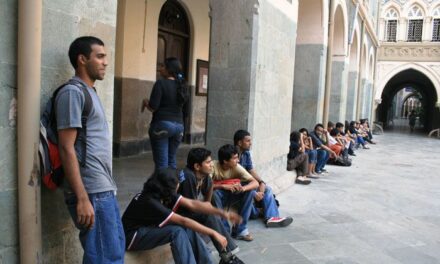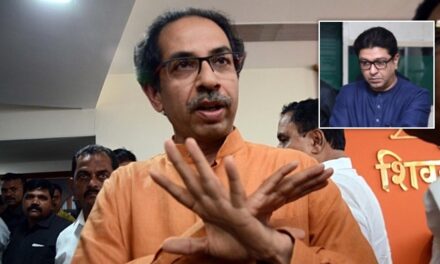Ola, Uber drivers angry over declining income, may go on strike tomorrow


Representational Image. Courtesy: Prokerala.com
In a first for Mumbai, drivers associated with app-based aggregators Ola and Uber may launch an agitation this week over recent policy changes, which the drivers say has led to a decline in their income.
According to an HT report, around 200 drivers reportedly met at Bandra-Kurla Complex on Sunday and decided to launch the agitation against the companies. They will meet again today and tomorrow to decide the further course of action.
As a part of the protest, more than 500 drivers will stop plying on February 28 and park their cars outside Ola and Uber offices. If the companies fail to give in to their demands, they will go on strike.
While this may be the first agitation in Mumbai, other cities like Delhi, Hyderabad and Bengaluru have already witnessed similar protests.
The drivers have alleged that the companies are failing to provide minimum daily bookings, diverting bookings to the company owned cabs and have hiked the ‘driver denied duty’ penalties – all of which have severely affected their earnings.
“Over 25,000 drivers are associated with these companies, which means the lives of at least one lakh people are at stake. If the companies keep cutting into our earnings to increase profits, we will have no option but to boycott them completely,” an Ola driver told Local Press Co on the condition of anonymity.
The drop in earnings has especially hit those drivers who had taken a loan to procure new cars and are still paying EMIs.
“I had taken a loan of 4 lakh to purchase my car. I have paid just two EMIs and my earnings have already taken a hit. If this continues, I won’t even be able to pay the EMI going forward,” said another driver who will be a part of the agitation.
On average, every driver has witnessed a decline of 10 to 20 percent in their income in the last few months, he added.
Since they started operations three years back, app based aggregators like Ola and Uber have witnessed a steady growth in terms of driver-partners, revenue and customer loyalty.
A major contributing factor to their success was the increasing number of driver partners, many of whom were traditional taxi or auto drivers who were lured by the higher revenue opportunities.
However, policy changes and their cascading effect on revenues could potentially impact more than just drivers. It could also affect the daily commute of lakhs of Mumbaikars, who use their services everyday.
On the other hand, the agitation may come as a symbolic victory for the city’s remaining 1.4 lakh rickshaw and taxi drivers, who have been protesting against the app-based aggregators since early last year.
“We knew these companies were going to cut down driver’s incomes once they were in a strong position. That is why most of us refrained from joining them. They have just started showing their true colors. It will get worse in the future,” said Ravindra Sharma, a cabbie from the city.
Meanwhile, the government is still in the process of implementing the City Taxi Rules 2016, which is aimed at regulating app-based taxis.
Update (March 1):
Raju Patil, president of Sangharsh Tourist Taxi Chalak Malak Sangh, was quoted by Hindustan Times saying that the strike has been deferred to March 21.
“We have decided to go on an indefinite strike from March 21. Prior to this, we will protest against the companies at Azad Maidan, keeping the vehicles off the road, on March 14,” Patil said.
The Union also submitted a memorandum of the demands to the government and the managements of Ola and Uber today.













